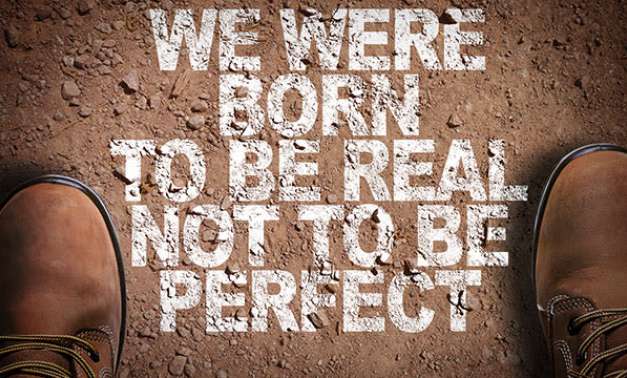
Spiritual Workout
Repetition is how we see change and results. When a person goes to the gym or when he does things that he knows work over and over again - inevitably, he sees results....

Repetition is how we see change and results. When a person goes to the gym; or when a person does things that they know work over and over again – inevitably, they see results.
Progress is the only thing that makes us feel alive. Progress, or “growing”, is an inherently enjoyable thing for a human being. It makes us feel good! But we have to have the right tools and strategies and a goal to work towards, if we want to make progress.
Spiritual health begins in the same way that good physical health does. How do we work out, spiritually? We talk to Hashem. Verbalizing words of prayer has a special greatness that no other form of “spiritual workout” really has.
Setting the Goal
Before we can make the decision to set a goal, we first have to believe in that goal. That it’s valuable;  compelling; inspiring. That it’s drawing us to it. Let’s take the example of quitting cigarettes.
compelling; inspiring. That it’s drawing us to it. Let’s take the example of quitting cigarettes.
Once the person makes the decision to become a “non-smoker”, it makes a big, big difference. They are no longer the same person. By deciding to become a “non-smoker”, that person has just cut themselves off from cigarettes.
There’s a lot of similarity between the words “incision” and “decision” – for a good reason. When a person makes a real decision, things change, they move. What’s a “real” decision? I can tell you what’s NOT a real decision:
“I really hope to try…”
“I really want to make a resolution to….”
“I would really like to…”
OK, these are yearnings, it’s a beginning, there’s potential there. But it’s not a real decision. It’s a good start, but we need to go much further.
Conditioning
A group of scientists took a monkey, and tied it’s hand down, all except for one finger. They then moved that one finger up and down 10,000 times. When they untied the monkey’s hand, that finger kept moving up and down of its own accord. This phenomenon is called “conditioning.”
The repetition conditioned the monkey to keep acting the same way.
This also happens to us, both for good and for bad. Whenever we repeat an action, a thought, an experience, whatever it is, that repetition creates a metaphysical wire between the neurons of the brain. Each time they moved that monkey’s finger up and down, it created 10,000 of these “wires” in the monkey’s brain.
The next stage of the experiment also yielded some very interesting results for us humans. They repeated the experiment, but this time, they also stimulated the “pleasure center” of the monkey’s brain at the same time they moved the finger up and down, so that the monkey felt extreme pleasure when his finger was being moved. Instead of taking 10,000 repetitions, they had that monkey conditioned with just 24 repeated actions.
This fits exactly with what Rebbe Nachman teaches us, about serving Hashem with simcha, or happiness. When we’re finding our observance a pleasure, when it makes us happy to do Hashem’s Commandments, we feel good in our brains and in our bodies.
Rav Arush says that we have to be in a proper state of mind before we can learn, or make a decision. If we’re not, then we won’t be able to carry it through. What is that that proper state of mind? Simcha. Happiness.
We want to make a good decision and stick to it? Then we first need to dance, sing, somersault – whatever it takes to get us into a good mood.
Before we make a decision, we have to believe in it. This leads us to the next question: how do we know what we really believe in?
This may surprise some of us, but we already have a number of beliefs in our mind that were “pre-installed” during our childhood, even if we didn’t know that was happening. Even if we aren’t consciously aware of these “beliefs”, the unconscious mind is constantly reading those scripts, and telling us what we want to do, what we believe in, and what we are capable of.
“Be a doctor.”
“Be a teacher.”
“Be a rabbi.”
“Be a fireman.”
What we shoot for in life has a lot to do with what we believe about ourselves.
The good news (for most of us…) is that we don’t have to get stuck with these “pre-installed” beliefs, particularly if they aren’t good for us. We can reprogram ourselves – and that’s exactly what emuna therapy and emuna coaching is all about.
We can change our inner belief system by having conversations with G-d, where we ask Him to help us to believe what we really want to believe. We all have to find a way of believing that our aspirations are valuable; that they matter; and that we are really worthy of achieving them.
We say: Hashem can do anything!
That’s a very powerful belief system. So is the idea that prayer can accomplish anything. And that’s what Rebbe Nachman is teaching us in Torah 75 of Likutey Moharan. I have to work on really ingraining that belief, on really believing it, in my conversations with G-d every single day. “Hashem! Let me believe that it’s true for me too! Hashem, help me to believe that I’m not wasting my time trying to change and praying to improve, even if I can’t see the results immediately. Help me to believe that talking to You is really working, and that I should continue doing it.”
If the people of Israel had merited to keep the first Torah that Moses brought down from Mount Sinai, we’d be living in a world where everything would go right the first time, and we wouldn’t forget what we were really striving after.
But we didn’t! We have to work hard to achieve something in this world, but honestly, it feels so much better when we have to make that effort to get somewhere.
They did a study on lottery winners, to see what was going on with them a few years’ after their ‘big win’. The results were very interesting: the vast majority really weren’t very happy. Yes, they had a lot of money, nice houses, great cars etc. – but they didn’t make any effort to get it. They didn’t ask G-d for it. And when all was said and done, they really weren’t enjoying the money very much.
Making an effort is a good thing. We don’t want hardships, but we get them anyway. I can either complain and suffer about the difficulties in my life, or I can believe that they’re really good for me, and I can use them to become a better parent, spouse, colleague and Jew.










1/12/2013
Thank you Thank you for the article. It is very well written and so true. I forwarded it to my Facebook friends because I believe everything you say and also teach the same. Thank you also for being my friend on Facebook and may God abundantly bless you for your work of love.
1/12/2013
Thank you for the article. It is very well written and so true. I forwarded it to my Facebook friends because I believe everything you say and also teach the same. Thank you also for being my friend on Facebook and may God abundantly bless you for your work of love.